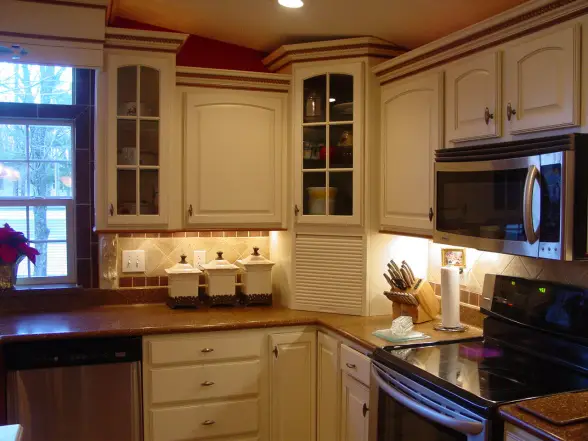Table of Content
You need to request Fannie Mae Form 1007, which is a Single-Family Comparable Rent Schedule. It’s like an appraisal, but for rental income instead of home value. Renting out your home could be the right choice if you want to buy another home. The choice to rent out your original home could create additional cash flow that your budget has been waiting for.

That person would know if the rental market is strong, how much you could possibly get per month and what it takes to be a landlord. Also, by contacting your accountant before stepping into the landlord world, you can find out information about all the new tax laws that could affect you and what your property taxes might be. People who live in their own flat or house spend around 27 percent of their income on housing costs. Those who are renting from private owners pay spend some 37 percent of their income and those renting a municipal apartment spend around 27 percent.
Can I Buy Another Primary House After Refinance?
Calculate your price-to-rent ratio to figure out which is the best financial option for you at any point in time. Anderson is CPA, doctor of accounting, and an accounting and finance professor who has been working in the accounting and finance industries for more than 20 years. Her expertise covers a wide range of accounting, corporate finance, taxes, lending, and personal finance areas. If you think it will be close, you can try to eliminate other debt payments (i.e. get cc balance to 0 and maintain for some time, pay off a car, etc). And yes, to the other poster’s point - once you have House #1 rented for a year, 75% of the income from that rental offsets the mortgage of that property (Debt/Income ratio).
You get tired of being a landlord and put it on the market for sale. Keep in mind that you don’t need the above-stated reserve amount for the property you’re buying, nor does the new property count as one of the financed properties. This form is completed by a licensed appraiser and can be ordered by your lender. The document compares your home to similar rental homes in your area. First, you should see if you qualify for a new mortgage on top of your existing debt, without the help of rental income. If so, you eliminate the need for extra paperwork that verifies future rent on your home.
See more articles about the benefits of buying a home
Choosing to buy or rent, though, is a major decision that affects your financial health, lifestyle, and personal goals. Whichever option you choose depends entirely on your lifestyle and financial situation. Both require a regular income and may also require a certain degree of effort to maintain. But Brown believes an experienced agent can help assess the market and determine a realistic rent as well as whether you could get tenants for that rate. Takes a lot of knowledge and work, which is why many investors hire a property manager.
Maybe a change is on the horizon, like a career transition or a child attending a different school, where renting a home makes more financial sense and aligns better with your long-term goals. Renting may also be a good choice if you have a busy lifestyle, move around a lot, or simply prefer more freedom and aren't ready for a big commitment. There’s a surprising amount of paperwork involved when even one home is rented out. Items such as lease agreements, rent payment receipts, paid maintenance invoices, and records of landlord-tenant communications all need to be organized and safely stored.
Managing Your Rental Property
Renting out your home can generate passive income, but you’ll also be taking on the responsibilities of a landlord and property manager. However, with tax breaks and the potential to grow and expand in real estate investment, it’s possible to boost your profits significantly. Weigh out the responsibilities versus the profit to determine whether being a landlord is right for you.
You can get a mortgage based on the rental comps and apply it to your debt to income ratio. Your income plus profit from the property need to qualify you for the next. A lease option is an agreement that gives a renter the choice to purchase the rented property during or at the end of the rental period. And let's not forget repairs and maintenance, which can be very costly. Replacing your roof could cost an additional $12,000, which may not be covered under your home insurance policy. Although not as universal as homeowners' insurance, renters' insurance is often recommended for those leasing homes or apartments.
So in my example above, once House #1 rents at what we expect ($2k), we will actually be able to borrow even MORE than we could have before. I'm I'm process of paying off all cc debt and want to be moving aggressively in the next year to purchase another property. Granted, of course we don't know what the lending situation will be like in 2021. As a renter, you may face rent increases each time your lease is up for renewal. These rent increases can be even steeper if you live in certain parts of town.
Increasing rent prices or falling home prices may make buying a better choice. With a top tier credit score, my lenders were willing to do up to an insane 50% debt to income ratio (not counting rental income, since it didn't exist yet). Note, however that that was a year ago, and the climate has changed a bit.
However, there are benefits of using the first home as a rental and buying a second one to live in. Home prices have historically appreciated in the U.S., making real estate a good choice for people wanting to build wealth over the long term. In this competitive market, many prospective homebuyers are considering alternatives to buying—like renting.

However, there are issues when buying new primary home and renting exiting home. Buying is the better decision when the price-to-rent ratio is 15 or less. A ratio of 21 or more means that renting is the better choice because house prices may be overpriced. Your landlord will handle the bulk of the maintenance and repair needs if you rent. But the landlord will require you to pay for the damage in most cases if you're the one who caused it. Ryan McCarty, CFP and owner of McCarty Money Matters, says the first question he asks young buyers is whether they're ready for the responsibility.













